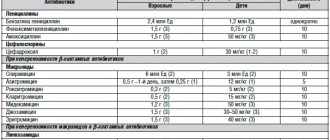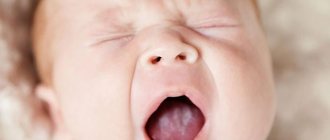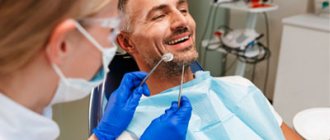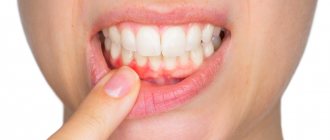Is it possible to drink alcohol with antibiotics?
You have been prescribed antibiotics, and you do not know whether you can drink a glass of wine or a glass of beer.
There is an opinion that you should not mix antibiotics and alcohol. For many who don’t like to drink, it has even become a convenient excuse for drinking. As soon as you say that you are taking antibiotics, the persuasion to drink immediately stops. However, legends are legends, but it doesn’t hurt to find out the truth. Let's figure out whether you can afford alcohol during antibacterial therapy. To begin with, a few words about antibiotics.
These are medications prescribed for bacterial infections. Different antibiotics have different mechanisms of action, but the result is the same - the death of bacteria or their inability to reproduce. Important. Antibiotics are not taken for viral diseases because they are unable to fight viruses.
Therefore, for flu and colds, taking antibiotics is not advisable. Many people, with symptoms of acute respiratory diseases, immediately grab antibiotics, which makes a big mistake. You can take these medications only with your doctor's permission. Like other medications, antibiotics have side effects. It is noteworthy that when combined with alcoholic beverages, the likelihood of side effects may increase. In addition, there is a danger of new adverse reactions. This, by the way, applies not only to antibiotics, but also to other medications, for example, sleeping pills, antiallergic drugs, sedatives, anti-inflammatory and painkillers.
Speaking about antibiotics and alcohol, the compatibility of which is questioned, it is important to note how alcohol interacts with the drug. Let's consider 2 main mechanisms due to which it is impossible to mix antibiotics and alcohol.
Metabolism of drugs
Any drug is metabolized in the body, that is, it goes through a series of transformations. The medicine begins to disintegrate already in the oral cavity. This process is enhanced in the gastrointestinal tract, where the drug is absorbed into the blood in the small intestine. The substance then passes through the liver, where it can undergo changes. The drug circulates in the bloodstream for some time, after which it is excreted in the urine (often in an altered form).
Now let's figure out what happens when you take alcohol while on antibiotic therapy. Like medications, alcohol is also metabolized. This happens in the liver with the help of specific enzymes. If the liver needs to cope with both alcohol and drugs at the same time, then the enzymes will either work too quickly or will not have time to do their job.
If the liver works too quickly, then the antibiotic will be destroyed prematurely and will not have time to fully realize the therapeutic effect. If liver function is slowed down, the antibiotic will accumulate in the blood too quickly, which leads to great toxicity of the drug.
Increased side effects
In some cases, the combination of alcohol with antibiotics can cause increased side effects or the appearance of new ones (from taking antibiotics). In particular, this is indicated for antibiotics that, for example, cause drowsiness. If you also drink alcohol, your drowsiness will increase. However, in addition to increasing the main side effects (which are indicated in the instructions for the drug), new ones may also appear. Often these are headaches, nausea, heart rhythm disturbances, intestinal disorders and abdominal pain.
Important: antibiotic resistance. Bacteria, like any other living organisms, evolve, adapting to new environmental conditions. In this case, they are able to adapt to the action of antibiotics. This is how antibiotic resistance develops—the resistance of certain types of bacteria to one or another type of antibiotic. Currently, this is one of the most serious medical problems, as resistant bacteria are becoming more and more, and the search for new antibiotics is difficult. Uncontrolled use of antibiotics is one of the reasons for bacterial resistance. Often patients stop taking the medication on their own as soon as they feel improvement. You can't do this with antibiotics. It is important to drink the entire course prescribed by the doctor, even if you feel significant relief “ahead of schedule.”
When can you take antibiotics after drinking alcohol?
Antibiotic therapy is often prescribed for exacerbation of diseases. Should I stop taking the medicine if I have alcohol in my body? The final decision is made by the doctor, based on the medical history and health status of the patient. If the benefits of antibiotic therapy outweigh the potential threats, then the first injection is given without taking into account the time that has passed since the last time you drank alcohol. If the underlying disease does not directly threaten the patient’s life, then the start of a course of antibiotic therapy is postponed until ethanol is completely removed from the body. The exact timing depends on the type and amount of alcohol consumed.
Doctors categorically do not recommend giving antibiotics to people who are acutely intoxicated. In a person who drinks large amounts of alcohol over a short period of time, liver enzymes are inhibited. This means that the medicine will not be able to be metabolized. The amount of active substance in the blood will increase. The risk of side effects will increase.
If antibiotic therapy is required for a person who has been abusing alcohol for a long period of time, a blood test will be performed first. The liver enzymes of chronic alcoholics break down medications too intensively. As a result, the concentration of active components in the blood decreases. It is necessary to review the dosage of the prescribed drug and conduct a test for resistance to antibacterial agents.
What happens if you drink alcohol with antibiotics?
Let's look at some of the negative consequences of taking alcohol and antibiotics at the same time. Let us immediately note that such phenomena may not be observed, but we are obliged to tell the reader about this, since such reactions occur in medical practice.
- Liver dysfunction . If you have a healthy liver, you may not feel the effects of mixing alcohol with antibiotics. However, be aware that the liver experiences a double burden of processing both alcohol and the drug.
- Disturbances in the functioning of the nervous system . In some people, alcohol in combination with antibiotics causes significant disturbances in the central and peripheral nervous system. In particular, this is expressed by headaches, dizziness, nausea and even convulsions.
- Sleep disorder . Disturbances may occur up to the reversal of day and night.
- Cardiovascular disorders . Most often this is a change in blood pressure (both upward and downward).
- Allergic reactions . In rare cases, antibiotics and alcohol can cause severe allergic reactions, including anaphylactic shock. The latter is a serious condition that threatens human life. In this case, you need to call an ambulance.
- Digestive tract disorders . Combining antibacterial drugs with alcohol may cause indigestion, abdominal pain, and diarrhea.
What medications are strictly prohibited from taking alcohol?
There are several specific antibiotics that directly interact with ethyl alcohol. Drinking any amount of alcohol is strictly prohibited during treatment with drugs from the list.
- Metronidazole: An antimicrobial agent most often prescribed to treat dental and vaginal infections. Metronidazole is added to external products intended for cleaning trophic ulcers and treating deep bedsores.
- Tinidazole: An antibiotic designed to fight simple infections. Included in drugs aimed at combating Helicobacter pylori.
- Cycloserine: prescribed for the treatment of tuberculosis, lung infections. In combination with ethyl alcohol it causes convulsions.
- Linezolid: Used to treat skin infections and is effective against bacteria that are resistant to other types of antibiotics.
Alcohol in combination with the above drugs provokes a sharp increase in blood pressure, headaches, and drowsiness. It must be remembered that side effects occur even if the antibacterial agent is used in the format of an external cream or gel.
How many days after taking antibiotics can you drink alcohol?
How much should you not drink after taking antibiotics? This is also one of the most common questions asked by patients forced to take antibacterial drugs. In this case, much depends on the specific drug, namely, the time it takes to remove it from the body.
In most cases, it is enough to take a two-day break (48 hours) after taking antibiotics, after which you can indulge in alcohol. In some countries they recommend waiting 3 days. There is no consensus on this matter. The only thing that can be said for sure is that you need to wait at least 2 days.
Why you shouldn't drink while on antibiotics
The medical literature (scientific articles, treatment recommendations, etc.), which talks about the harmfulness of combining antibacterial drugs with alcohol, indicates a number of negative phenomena that occur when taking alcoholic beverages and antibiotics at the same time. The negative consequences come down to two undesirable effects, namely:
- Reduced effectiveness of antibacterial therapy . It is indicated that alcohol inhibits the antibacterial activity of antibiotics. Thus, the suppression of pathogenic microflora is less effective, which creates the need to extend treatment or find a new antibiotic.
- Liver damage . With the simultaneous use of alcoholic beverages and antibiotics, a large load is placed on the liver tissue. The risk of intoxication not only of the liver, but also of the body increases, since the liver is a filter through which blood passes.
Let's figure out how true these statements are. And if an antibiotic and alcohol have already been mixed, what will happen to the body?
As for reducing the effectiveness of antibiotic therapy, such a danger really exists. But this applies not only to antibiotics, but also to other medications. It is noteworthy that there is still no convincing data regarding the negative effects of alcohol on various groups of antibiotics. In one animal study, no interaction between antibiotics and alcohol was observed. A study in humans did not show a significant decrease in the effectiveness of antibacterial therapy.
However, the instructions for such drugs state in black and white that it is advisable to abstain from drinking alcohol. Experts say that not enough research has been done on this issue, so it is better to stay away from alcohol while taking antibiotics. In addition, in the studies conducted, volunteers were given small doses of alcohol, which most likely do not have a significant effect on the metabolism of pharmacological drugs. Therefore, to the question of whether you can drink if you take antibiotics, the answer is still negative.
To summarize the above, we can identify 5 main reasons why it is undesirable to combine antibiotics and alcohol:
- Deterioration of metabolic processes . Alcoholic drinks impair the absorption of nutrients, vitamins, minerals, and medications. This means that antibiotics will be less absorbed into the blood, which will reduce their effectiveness.
- Increased blood sugar . Alcohol is metabolized in the body to form sugars. This is a particularly dangerous situation for patients with diabetes. In addition, an increase in sugar levels during infectious diseases can only aggravate the course of the pathological process, because sugar is a substrate for pathogenic microorganisms.
- Decreased immunity . Drinking alcoholic beverages reduces the body's defenses. Thus, the infectious process will only intensify.
- Allergy . Combining antibiotics and alcohol increases the likelihood of allergic reactions such as skin rashes.
- Unpredictable consequences . Despite the contradictory evidence base, it is difficult to make predictions regarding the interaction of drugs with alcohol in each specific case. Perhaps this combination will lead to undesirable consequences for you.
Important: antibiotics and other medications. For the information of our readers, it is undesirable to combine antibiotics not only with alcohol, but also with some other medications. When prescribing antibacterial therapy, the doctor will definitely ask what medications the patient is currently taking. As a rule, antibiotics are not recommended to be combined with anticoagulants, anticonvulsants, some hypoglycemic drugs and other drugs. If for some reason the doctor forgot to ask about the medications you are taking, then do not hesitate to ask him this question.
What antibiotics are safe to drink alcohol with?
It is better to completely abstain from drinking alcohol during illness. However, medications from the list below do not have a negative interaction with alcohol:
- amoxicillin;
- azithromycin;
- ciprofloxacin;
- cephalexin;
- clarithromycin;
- clindamycin;
- levofloxacin;
- penicillin.
Antibiotics of the tetracycline group, including Doxycycline, have little interaction with alcohol. There is no need to worry about the development of a disulfiram-like reaction. However, ethyl alcohol significantly reduces the amount of tetracyclines in the blood. You must tell your doctor about the amount of alcohol you drink. The specialist will recalculate the dosage of medications and change the duration of the course of therapy.
Even if the doctor prescribes an antibiotic compatible with alcohol, it is necessary to take the treatment process responsibly. Any infection weakens the body, and the entry of ethyl alcohol into the blood will only worsen the resistance of the immune system.
Instead of strong drinks, it is better to drink clean water, eat right and get plenty of sleep. Alcohol interferes with the body's ability to absorb vital nutrients and increases blood sugar levels. And chronic alcoholism will even provoke constant relapses of infectious diseases, the development of multiresistance, bacterial resistance to all known types of antibiotics.
Antibiotics and beer
Or maybe beer with antibiotics, because of all alcoholic drinks this is the least “strong”? Indeed, beer is a low-alcohol drink. However, its insidiousness is that, as a rule, people drink a lot of beer. So, 100 ml of beer contains approximately 3-6 ml of pure alcohol. Thus, if you drink 0.5 liters of beer, then this is already 15-30 ml of ethanol. And if the beer is strong, then this is already 40-50 ml of alcohol.
You shouldn’t relax about non-alcoholic beer either, because it still contains some amount of alcohol. Therefore, if you are taking antibiotics (especially if it is a short-term course), then it is better to abstain from alcohol, even if it is beer. For the sake of your health, you can wait a week or two without a bottle of beer.
Antibiotics and alcohol: myths
So, as mentioned above, the negative effect of alcohol on antibiotics is a debatable issue. No one has proven this yet. Medical recommendations regarding abstinence from drinking alcohol during antibacterial therapy are rather “insurance” against a possible negative effect.
There are several theories why doctors still prohibit drinking alcohol while taking antibiotics. One of these is that when treating sexually transmitted diseases, doctors in this way simply punished their patients for their dissolute lifestyle.
There is a second interesting story related to the shortage of penicillin during World War II. It was in Africa, where British troops were conducting military operations. For the doctors there, penicillin was worth its weight in gold. It got to the point that urine was taken from sick soldiers in order to isolate penicillin from it and reuse the drug. But if you drink beer at the same time, the volume of urine increases sharply, which complicates the process of excreting the medicine from the urine. Therefore, patients who were prescribed an antibiotic were prohibited from drinking.
What else are antibiotics not compatible with?
However, the matter is not limited to just abstaining from alcohol while taking antibiotics. An important role is also played by what other medications a person takes and even what to wash down the medicine taken with.
So, for example, drinking a glass of milk along with an antibiotic tablet or eating a piece of cottage cheese casserole can negate all the benefits of the drug. The worst combinations with dairy products are penicillins and tetracyclines, which form stable chelate complexes with calcium. But taking erythromycin with milk is quite acceptable.
Antibiotics should not be combined with tea, coffee, lemonade, fruits and fruit juices, as well as dishes that contain vinegar.
You need to take the antibiotic strictly according to the instructions at regular intervals. If the matter is not limited to taking one drug, it is important to make sure that the drugs do not conflict with each other. A qualified doctor, of course, will not prescribe incompatible drugs, but he may not know that you are currently being treated by another specialist and are taking the pills prescribed by him.
For example, cholestyramine and enterosorbents taken simultaneously with antibiotics reduce the absorption of the latter. Taking erythromycin while taking oral contraceptives can lead to intrahepatic cholestasis, and some antibiotics can reduce the effectiveness of oral contraceptives.
Cephalosporins are dangerous to combine with thrombolytics due to the risk of bleeding, and macrolides and fluoroquinolones can enhance the toxic effect of theophylline.
Combining alcohol and a number of drugs can be fatal
Augmentin and alcohol
Among other things, many patients may have a question: is it possible to drink alcohol while taking Augmentin? Is Augmentin compatible with beer, cognac and other alcoholic drinks? It is noteworthy that the American instructions for amoxicillin with clavulanic acid (Augmentin) do not list side effects associated with the combined use of alcohol. There have also not been any studies on the negative effects of combining amoxicillin with alcohol to reasonably prohibit patients from taking alcohol during antibiotic therapy.










